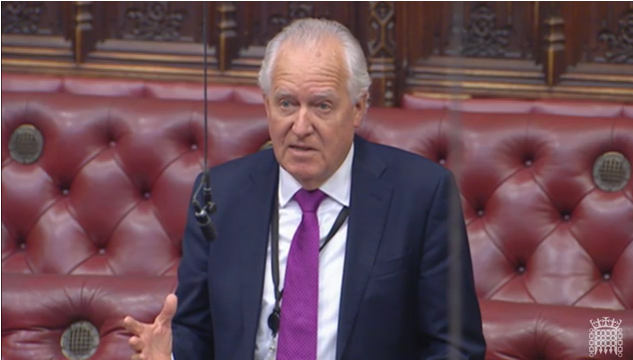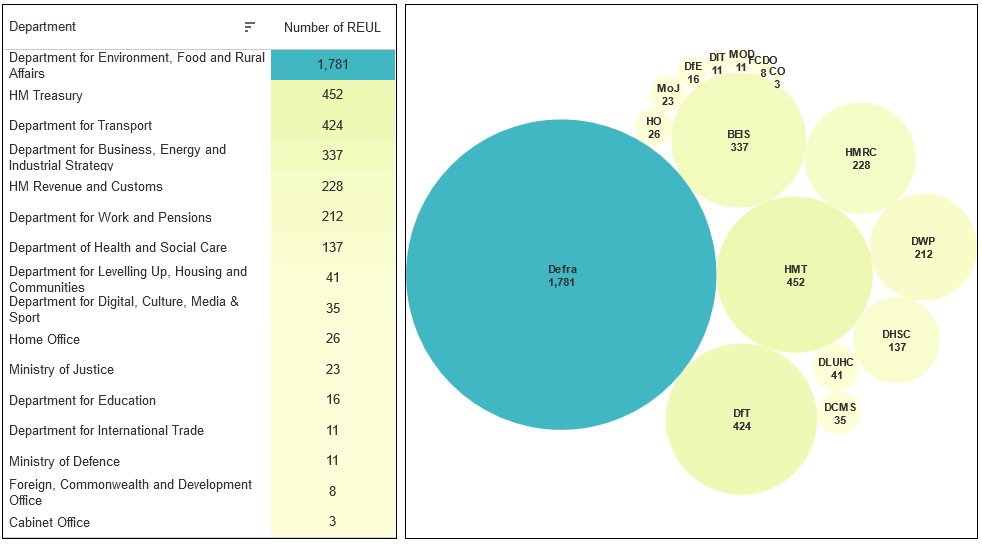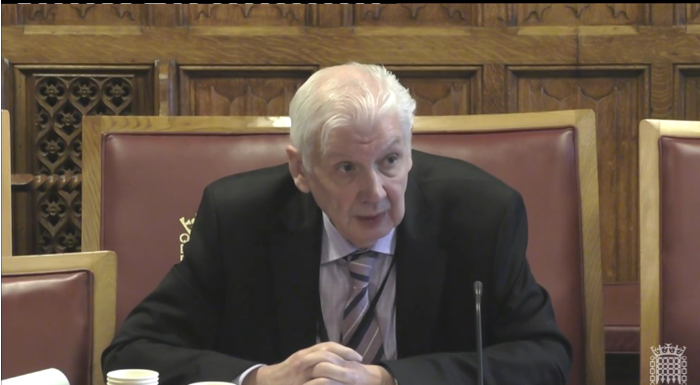Brexit & Beyond newsletter
3 April 2023
Welcome to the 3 April 2023 Brexit & Beyond newsletter
The House of Lords has debated and voted on the Stormont Brake. The Senedd refused consent for the UK Government’s Retained EU Law Bill, while the Prime Minister and Minister Gove have commented on the Government’s intentions for regulating after Brexit. The Lords Sub-Committee on the Protocol held a session with Lord Bew and Lord Murphy on the Windsor Framework. The Government announced replacement funding for charities and community groups, as the European Social Fund ended for Northern Ireland. The Government has agreed to join the Comprehensive and Progressive Agreement for Trans-Pacific Partnership (CPTPP).
Lords debate the Stormont Brake legislation
On Wednesday 29 March, the House of Lords debated the legislation to implement the Stormont Brake, the Windsor Framework (Democratic Scrutiny) Regulations. The Windsor Framework, adopted by the EU and UK on 24 March, provides for a role for the NI institutions. As set out in the legislation, 30 MLAs can notify the UK Government that they wish to pull the Brake. The Statutory Instrument also provides for consideration of new EU acts by the NI Assembly, through a debate on an ‘applicability motion’, which would need to be passed with cross-community support.
In a debate lasting almost four hours, Lord Morrow (DUP) proposed a fatal amendment, which was rejected by 227 votes to 14. He told peers, “Nothing in the regulations before us today, or in any other aspect of the Windsor Framework, changes the fact that, under the Protocol, the people of Northern Ireland cannot stand for election to make the law to which we are subject in some 300 different areas.”
Lord Jay, who chairs the Lords Sub-Committee on the Protocol, said that the Stormont Brake “is imperfect, and, despite the explanations of the Government and the Minister this afternoon, it is not clear to me exactly how it will work in practice.” He asked for clarity about when the NI Assembly will receive information about EU legislation, asking the Minister if the Northern Ireland institutions will be strengthened “to enable them to carry out the proper scrutiny” under the Stormont Brake. Lord Hain, former Secretary of State for Northern Ireland, suggested the Brake and applicability motion could “stoke tensions in the Assembly. If the minority of MLAs are unsuccessful in their quest to use it, that could well increase resentment towards the Windsor Framework and the UK Government.” Welcoming much in the Framework, he said, “The new institutions…may be well intentioned…but they also contain long-term risks.” Baroness Ritchie said, “Notwithstanding my queries and concerns regarding the Stormont Brake, I want to see the framework implemented, because I believe that is the key that will unlock the path to the restoration of political institutions in all the strands of the Good Friday Agreement and the Northern Ireland Act.”

Lord Hain, former Secretary of State for Northern Ireland, speaking during the debate in the Lords | Source: UK Parliament
Lord Dodds contended, “[The SI] is so convoluted and hard to operate that…it is unlikely ever to be used…a whole range of issues—claims about state aid having been dealt with; VAT and excise; red and green lanes to allow no checks—have all been found wanting and to be inaccurate.” He went on to say, “When facts emerge they have to be dragged from the Government, and it is often from EU sources that you actually find out what is happening.”
Regarding divergence between NI and GB, Minister in the NI Office Lord Cain pointed to the UK Internal Market Act, which “guarantees Northern Ireland unfettered access to the market in Great Britain”. He emphasised that the new scrutiny committee in the Assembly “will not just be able to look at new EU laws after they have been adopted in that two- month period during which the Brake can be pulled. We all know that many EU laws take a good many years in gestation and to become adopted. The committee will be able to look at proposals from the EU from the point at which they are announced or become public knowledge, not just the point at which they are adopted, so there will be quite a lengthy period in which the scrutiny committee can deliberate on these matters.” He concluded, “the Windsor Framework is not a perfect document; indeed, no deal ever will be. However, I believe that if we seek the unattainable, we genuinely risk making the pursuit of the perfect the sworn enemy of the very good.”
Retained EU Law: devolution, deregulation, and divergence
The Senedd voted to refuse consent for the UK Government’s Retained EU Law (Revocation and Reform) Bill on 28 March. The Bill would “sunset” the majority of retained EU law so it expires on 31 December this year, unless preserved. Mick Antoniw, Welsh Counsel General and Minister for the Constitution, said the Bill, “undermines the credibility and status of parliamentary democracy, placing immense power in the hands of Government Ministers to bypass parliamentary scrutiny and democratic accountability. It is a threat to and undermines devolution. In summary, it is a recipe for legislative chaos.”
The REUL Bill was raised on 27 March at the Commons Levelling Up, Housing and Communities Committee, which heard evidence from Secretary of State Michael Gove. Gove told the committee, “we are seeking to ensure that our statute book is in an orderly fashion, looking at every piece of retained EU law and deciding whether we want to retain, amend or ditch. I think that, in the overwhelming number of cases, by the end of this calendar year we will have decided that we want to retain.” Gove added, “I don’t think that, just because every piece of EU law is being looked at that, it means there will be a huge abandonment of regulatory certainty in a number of areas.” He cited the UK Government’s changes and review of EU regulations on gene editing and financial services, saying, “Those approaches provide new opportunities for business and individuals here. But things like protection for workers or means of maintaining high environmental standards are not diluted and they will not be.”

UK Government’s assessment of the volume of Retained EU Law by department | Source: UK Government REUL dashboard
Last week, the Prime Minister commented to the Commons Liaison Committee on the “advantages of Brexit and the ability to deregulate in areas like services”, and how this relates to Northern Ireland’s position. He told MPs, “There is complete flexibility on consumer competition, social and so on—all those things are outwith the Protocol [on Ireland/Northern Ireland]. That is where the bulk of the economy and growth is and that is where we have the ability to do things differently…we will be able to do that across the UK.” He noted changes to arrangements for VAT and excise duties under the Windsor Framework. From 1 May, VAT on energy-saving materials, such as solar panels and heat pumps, will be cut in Northern Ireland, in line with the rest of the UK. The BBC has more on the matter.
Anton Spisak writes for the Centre for European Reform on the implications of the REUL Bill for the Windsor Framework. He remarks that a practical consequence would be “unmanaged divergence, as the REUL bill, if implemented, would deepen the regulatory gulf between Great Britain and Northern Ireland.”
Lords Sub-Committee hears evidence on the Windsor Framework
On 29 March, the Lords Sub-Committee heard evidence on the Windsor Framework from Lord Bew, historian and academic, and Lord Murphy, former Secretary of State for Northern Ireland. Lord Murphy commented that more work could and should be done on negotiations with local parties in Northern Ireland, saying he is “troubled” by their lack of involvement: “unless you involve the parties in Northern Ireland that will eventually have to work this agreement in the Assembly, it will come to nothing.”

Lord Bew speaking to the Lords Sub-Committee on the Protocol | Source: UK Parliament
Lord Bew told the committee that the Stormont Brake is designed to deal with what was (up to recent times) “a reasonable fear that Northern Ireland could find itself radically de-aligning.” He said, “the UK Government are not going to quail” at using the Brake, given it is underpinned by an international agreement accepted by the EU, and he noted that the Government was previously prepared to take action without such an agreement.
Lord Bew spoke about the EU’s attitude to the negotiations, saying, “a decision was clearly made at a very senior level in the EU to try to create the best possible context for this to work for the UK Government”, in contrast to the approach in 2017-18. He pointed to concerns about the Brake in the EU that it “concedes too much to a local unionist veto”.
The Committee has also published written evidence submitted as part of its inquiry into the Windsor Framework.
Other news
- The UK Government announced a £57 million package through the UK Shared Prosperity Fund (UKSPF) for organisations in Northern Ireland to replace the European Social Fund (ESF). This was announced the same day the ESF funding lapsed, amid disquiet among many community organisations about their ability to continue services. The BBC reports on concerns about continued gaps in funding.
- The UK Government has agreed to join the Comprehensive and Progressive Agreement for Trans-Pacific Partnership (CPTPP), a free trade agreement including Australia, Brunei, Canada, Chile, Japan, Malaysia, Mexico, New Zealand, Peru, Singapore, and Vietnam. The Government says this “shows how the Government is taking advantage of its independent trade policy”. The deal, by the Government’s estimates, will add 0.08% to the size of the UK economy. The Government states that CPTPP, together with the Windsor Framework, “will give Northern Irish businesses full unfettered access to the rest of the UK and unique access to the EU market as well as preferential access to this dynamic bloc.”
- The European Committee of the Regions UK Contact Group met on 29 March. It adopted a statement welcoming the Windsor Framework and hoping “that it will lead to a breakthrough that gradually allows both the EU and the UK, and their constituent regional and local authorities, to focus on the real issues of mutually beneficial and pragmatic cooperation.”
- On Friday, DUP leader Sir Jeffrey Donaldson said he has received the report he commissioned on the Windsor Framework and “will now take time to discuss the report with [the] Party Officer team.”
- The UK Government has published its annual report on Intergovernmental relations for 2022.
- UK in a Changing Europe has published a tracker on the state of relations between the EU and UK.




